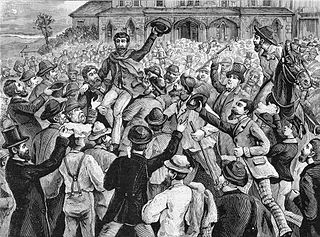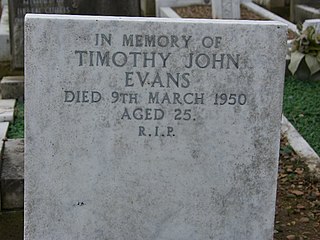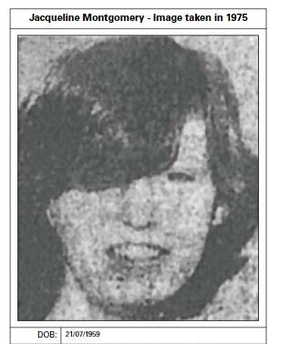Related Research Articles
In jurisprudence, double jeopardy is a procedural defence that prevents an accused person from being tried again on the same charges following an acquittal or conviction and in rare cases prosecutorial and/or judge misconduct in the same jurisdiction. Double jeopardy is a common concept in criminal law – in civil law, a similar concept is that of res judicata. The double jeopardy protection in criminal prosecutions bars only an identical prosecution for the same offence; however, a different offence may be charged on identical evidence at a second trial. Res judicata protection is stronger – it precludes any causes of action or claims that arise from a previously litigated subject matter.

In common law jurisdictions, an acquittal means that the prosecution has failed to prove that the accused is guilty beyond a reasonable doubt of the charge presented. It certifies that the accused is free from the charge of an offense, as far as criminal law is concerned. The finality of an acquittal is dependent on the jurisdiction. In some countries, such as the United States, an acquittal prohibits the retrial of the accused for the same offense, even if new evidence surfaces that further implicates the accused. The effect of an acquittal on criminal proceedings is the same whether it results from a jury verdict or results from the operation of some other rule that discharges the accused. In other countries, like Australia and the UK, the prosecuting authority may appeal an acquittal similar to how a defendant may appeal a conviction — but usually only if new and compelling evidence comes to light or the accused has interfered with or intimidated a juror or witness.

The murder of Wendy Sewell was committed on 12 September 1973. Wendy Sewell, a 32-year-old legal secretary from Bakewell, Peak District in Derbyshire was found beaten, sexually assaulted and murdered. In 1974, 17-year-old Stephen Downing was convicted of the murder of Sewell. Following a campaign by a local newspaper led by Don Hale, in which Sewell was purported to be promiscuous, Downing's conviction was overturned in 2002. The case is thought to be the longest miscarriage of justice in British legal history, and attracted international media attention.

A miscarriage of justice occurs when an unfair outcome occurs in a criminal or civil proceeding, such as the conviction and punishment of a person for a crime they did not commit. Miscarriages are also known as wrongful convictions. Innocent people have sometimes ended up in prison for years before their conviction has eventually been overturned. They may be exonerated if new evidence comes to light or it is determined that the police or prosecutor committed some kind of misconduct at the original trial. In some jurisdictions this leads to the payment of compensation.

R v Carroll (2002) 213 CLR 635; [2002] HCA 55 is a decision of the High Court of Australia which unanimously upheld the decision by a Queensland appellate court to stay an indictment for perjury as the indictment was found to controvert the respondent's earlier acquittal for murder. The court held that charging Raymond John Carroll with perjuring himself in the earlier murder trial by swearing he did not kill the baby Deidre Kennedy was tantamount to claiming he had committed the murder and was thus a contravention of the principles of double jeopardy. The case caused widespread public outcry and prompted calls for double jeopardy law reform.
Barry Michael George is an English man who was found guilty of the murder of English television presenter Jill Dando and whose conviction was overturned on appeal.
David Harold Eastman is a former public servant from Canberra, Australia. In 1995, he was wrongfully convicted of the murder of Australian Federal Police Assistant Commissioner Colin Winchester and was sentenced to life imprisonment without parole. A 2014 judicial inquiry recommended the sentence be quashed and he should be pardoned. On 22 August of the same year, the Supreme Court of the Australian Capital Territory quashed the conviction, released Eastman from prison, and ordered a retrial.

The Criminal Justice Act 2003 is an Act of the Parliament of the United Kingdom. It is a wide-ranging measure introduced to modernise many areas of the criminal justice system in England and Wales and, to a lesser extent, in Scotland and Northern Ireland. Large portions of the act were repealed and replaced by the Sentencing Act 2020.

The World's End Murders is the colloquial name given to the murder of two girls, Christine Eadie, 17, and Helen Scott, 17, in Edinburgh, in October 1977. The case is so named because both victims were last seen alive leaving The World's End pub in Edinburgh's Old Town. The only person to stand trial accused of the murders, Angus Robertson Sinclair, was acquitted in 2007 in controversial circumstances. Following the amendment of the law of double jeopardy, which would have prevented his retrial, Sinclair was retried in October 2014 and convicted of both murders on 14 November 2014. He was sentenced to life imprisonment with a minimum term of 37 years, the longest sentence by a Scottish court, meaning he would have been 106 years old when he was eligible for a potential release on parole. He died at HM Prison Glenochil aged 73 on 11 March 2019. Coincidentally, he died on the same day the BBC's Crimewatch Roadshow programme profiled the murders.
The Double Jeopardy Clause of the Fifth Amendment to the United States Constitution provides: "[N]or shall any person be subject for the same offence to be twice put in jeopardy of life or limb..." The four essential protections included are prohibitions against, for the same offense:

The Bowraville murders is the name given to three deaths that occurred over five months from September 1990 to February 1991 in Bowraville, New South Wales, Australia. All three victims were Aboriginal, and all disappeared after parties in Bowraville's Aboriginal community, in an area known as The Mission. A local labourer, who was regarded by police as the prime suspect, was charged with two of the murders but was acquitted following trials in 1994 and 2006. On 13 September 2018, the New South Wales Court of Criminal Appeal decided that the man could not be retried for the murders. On 22 March 2019, the High Court of Australia refused an application by the Attorney General of New South Wales to bring an appeal against that decision.
The Murder of Danny Katz was a terrorist attack carried out in 1983 in which a Palestinian militant killed 14-year-old Israeli Danny Katz. The attack, prominent among a series of attacks aimed at Israeli children during the early 1980s, shocked the Israeli public due to its brutal nature. It signified to many in the Israeli public a deterioration to their personal security at that time.
This is a list of notable overturned convictions in Canada.

R v Jogee[2016] UKSC 8 was a 2016 judgment of the Supreme Court of the United Kingdom that reversed previous case law on joint enterprise. The Supreme Court delivered its ruling jointly with the Judicial Committee of the Privy Council, which was considering an appeal from Jamaica, Ruddock v The Queen [2016] UKPC 7.
The Ford Heights Four were formerly imprisoned convicts, who were falsely accused and convicted of the double murder of Lawrence Lionberg and Carol Schmal in Ford Heights, Illinois, and later exonerated. Jimerson and Williams were sentenced to death, Adams to 75 years in prison and Rainge to life. Following the murder in 1978, the four spent almost two decades in prison before being released in 1996. This miscarriage of justice was due to false forensic testimony, coercion of a prosecution witness, perjury by another witness who had an incentive to lie, and prosecution and police misconduct. The DNA evidence uncovered in the investigation to clear their names eventually led to the arrest and conviction of the real killers.
Blueford v. Arkansas, 566 U.S. 599 (2012), was a decision of the Supreme Court of the United States that clarified the limits of the Double Jeopardy Clause. The Supreme Court held that the Double Jeopardy Clause does not bar retrial of counts that a jury had previously unanimously voted to acquit on, when a mistrial is declared after the jury deadlocked on a lesser included offense.
Burks v. United States, 437 U.S. 1 (1978), is a United States Supreme Court decision that clarified both the scope of the protection against double jeopardy provided by the Fifth Amendment to the United States Constitution and the limits of an appellate court's discretion to fashion a remedy under section 2106 of Title 28 to the United States Code. It established the constitutional rule that where an appellate court reverses a criminal conviction on the ground that the prosecution failed to present sufficient evidence to prove the defendant's guilt beyond a reasonable doubt, the Double Jeopardy Clause shields the defendant from a second prosecution for the same offense. Notwithstanding the power that appellate courts have under section 2106 to "remand the cause and direct the entry of such appropriate judgment, decree, or order, or require such further proceedings to be had as may be just under the circumstances," a court that reverses a conviction for insufficiency of the evidence may not allow the lower court a choice on remand between acquitting the defendant and ordering a new trial. The "only 'just' remedy" in this situation, the Court held, is to order an acquittal.
David Smith is an English repeat murderer, rapist and suspected serial killer who came to national prominence in 1999 when he was convicted of murdering a sex worker six years after having been acquitted of an "almost identical" murder. Cleared of the murder of 33-year-old west London sex worker Sarah Crump in 1993, Smith was found guilty in 1999 of the killing of 21-year-old Paddington sex worker Amanda Walker. Smith has since been linked to a number of other murders of sex workers across Britain.

The murder of Jacqueline Montgomery, a 15-year-old girl from Islington, North London, United Kingdom, occurred on 1 June 1975. She was murdered by Dennis McGrory, her aunt's 28-year-old estranged partner, who was described at his trial as being "wild with rage" when he sexually assaulted, stabbed, and strangled Montgomery at her family home in Offord Road.
References
- 1 2 3 4 5 6 7 8 "Prolific thief Michael Weir jailed for 1998 'double jeopardy' murders". BBC News. 16 December 2019. Retrieved 17 August 2022.
- 1 2 3 "Michael Weir guilty of 1998 'double jeopardy' murders". BBC News. 14 November 2019. Retrieved 17 August 2022.
- 1 2 3 4 5 6 7 8 9 "Double jeopardy murderer Michael Weir is jailed for life". The Guardian. 16 December 2019. Retrieved 17 August 2022.
- ↑ "Double jeopardy killer Michael Weir jailed for murdering two pensioners in legal first". Sky News. 16 December 2019. Retrieved 17 August 2022.
- ↑ Newing, Holly (19 December 2019). "Michael Weir: 'the first convicted man to be convicted twice' under double jeopardy law". The Justice Gap.
- ↑ While some defendants, such as Russell Causley, had been convicted of the same crime twice, Weir's case was the first in which a person had been re-convicted after having their conviction quashed without a retrial being ordered.